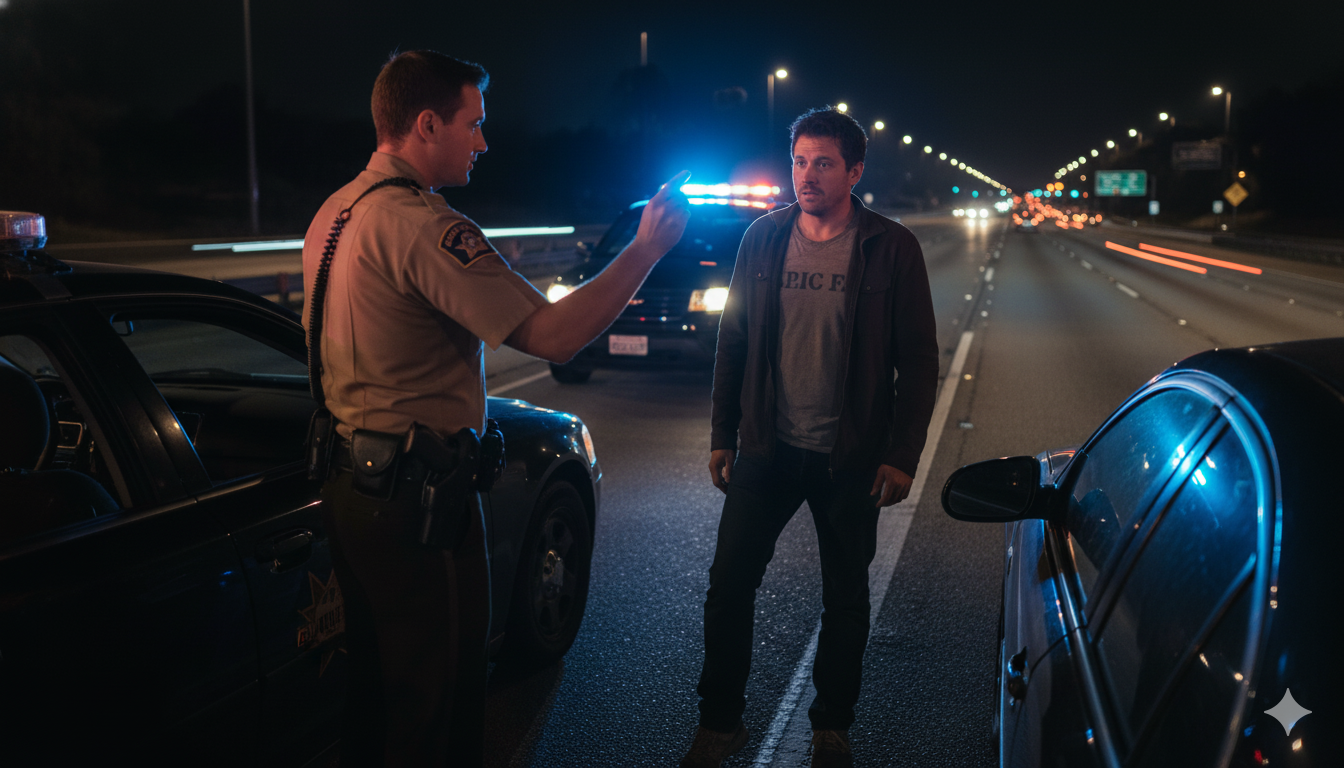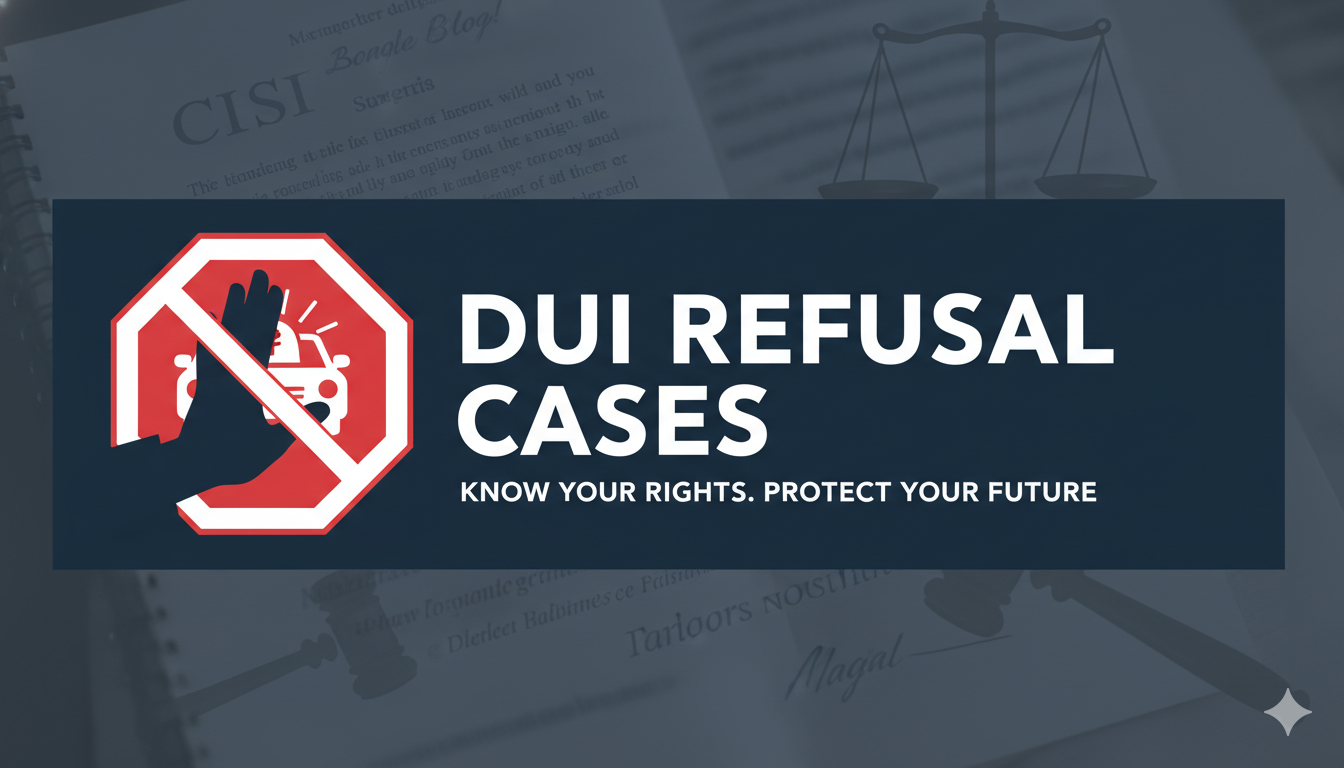When your child faces juvenile charges in Lompoc, their entire future is at stake—but you’re not alone, and there are options. Whether your child is dealing with juvenile delinquency proceedings for theft or vandalism, drug possession charges, assault or fighting at school, vandalism and graffiti allegations, joyriding or vehicle theft, gang-related charges, serious felonies that could result in transfer to adult court, school discipline escalating to criminal charges, or probation violations threatening detention at juvenile hall, understanding California’s juvenile justice system is the first step toward protecting your child’s future, their education, and their opportunities in Lompoc where juvenile records can impact college admissions, military service at Vandenberg Space Force Base, and employment prospects essential to success in this close-knit community.
At Central Coast Criminal Defense, we’ve helped Lompoc families defend their children against juvenile charges since 2010. We know the Santa Barbara County Juvenile Court, the judges who handle juvenile matters, the probation officers at Lompoc Juvenile Probation, and—most importantly—we know how to fight for results that protect what matters most: keeping your child out of juvenile detention, avoiding transfer to adult court for serious charges, sealing juvenile records so past mistakes don’t define their future, maintaining educational opportunities at Lompoc schools, and ensuring one mistake doesn’t destroy their chances for college, Vandenberg employment, or military service in a community where juvenile justice system involvement can derail promising lives if not handled properly with aggressive advocacy focused on rehabilitation not punishment.
What Is the Juvenile Justice System in California?
California’s juvenile justice system operates fundamentally differently than adult criminal court with focus on rehabilitation rather than punishment for minors under 18 accused of crimes. Juvenile proceedings are governed by Welfare and Institutions Code rather than Penal Code, with terminology and procedures designed to be less punitive: minors are not “arrested” but “taken into custody,” not “convicted” but “adjudicated,” not “sentenced” but receive “dispositions,” and proceedings are not “trials” but “adjudication hearings.” The juvenile court’s goal is rehabilitation and treatment, not punishment, with dispositions focused on counseling, education, community service, and family involvement rather than incarceration. However, despite rehabilitative focus, juvenile court can still result in severe consequences including commitment to Division of Juvenile Justice (DJJ, formerly California Youth Authority) for years, placement in group homes or residential treatment far from Lompoc families, lengthy probation with restrictive conditions affecting education and social development, and for serious offenses transfer to adult court under Welfare and Institutions Code Section 707(b) where minors face adult prison sentences. Additionally, certain serious juvenile offenses create permanent records affecting college admissions, military enlistment, professional licensing, and employment even after sealing.
In Lompoc and throughout Santa Barbara County, juvenile delinquency cases are handled at Santa Barbara County Juvenile Court, with Lompoc juveniles monitored by local probation officers and potentially detained at Santa Barbara County Juvenile Hall when court orders secure detention. Common juvenile charges in Lompoc include theft and shoplifting from stores along Ocean Avenue and H Street where juveniles steal merchandise, vandalism and graffiti throughout Lompoc neighborhoods and schools, drug possession charges when juveniles are caught with marijuana, alcohol, or other substances, assault and battery charges from fights at Lompoc High School, Cabrillo High School, or community locations, joyriding and vehicle theft when juveniles take cars without permission, burglary charges when juveniles enter buildings or vehicles to commit theft, gang-related offenses when Lompoc juveniles associate with criminal street gangs, weapons charges when juveniles possess knives or other weapons at schools or in public, and probation violations when juveniles fail to comply with court-ordered conditions including curfews, school attendance, or drug testing. Juvenile cases begin with arrest or citation by Lompoc Police Department or Santa Barbara County Sheriff’s Office, followed by referral to probation department which decides whether to handle informally through warnings and counseling, file formal petitions in juvenile court, or in serious cases refer to district attorney for adult court prosecution under direct file or transfer provisions.
What many Lompoc parents don’t understand is that California’s juvenile justice system provides significant opportunities to avoid formal adjudications and keep records clear through informal probation where probation officers handle cases without court involvement if minors comply with conditions, diversion programs including youth accountability boards, community service, and counseling resulting in case dismissals, deferred entry of judgment allowing dismissals after successful completion of probation terms, and record sealing under WIC 781 automatically sealing many juvenile records when minors turn 18 or after 5 years making past mistakes invisible to colleges, employers, and military recruiters. However, these favorable outcomes require aggressive advocacy from the moment charges arise—parents who hire attorneys immediately achieve far better results than those who navigate juvenile system alone or with public defenders handling excessive caseloads. Additionally, many juvenile charges result from school discipline escalating to criminal prosecution when school administrators call police for conduct that should be handled through educational discipline, misunderstandings or peer conflicts that don’t rise to criminal conduct, false accusations from other juveniles or witnesses, or situations where juveniles acted in self-defense or under duress. Without representation that challenges evidence, presents mitigating circumstances, advocates for diversion and informal handling, and fights transfer to adult court when prosecutors seek harsh adult sentences, your child risks detention, formal adjudication creating records affecting college and careers, and in worst cases transfer to adult court facing years or decades in state prison for conduct that should be handled in rehabilitative juvenile system focused on second chances for Lompoc youth who deserve opportunities to learn from mistakes and become productive members of the community.
- Legal Definition: Juvenile delinquency involves minors under 18 who violate criminal laws, with proceedings under Welfare and Institutions Code focused on rehabilitation rather than punishment, using non-criminal terminology where minors are “adjudicated” not “convicted” and receive “dispositions” not “sentences,” though serious consequences including DJJ commitment, group home placement, lengthy probation, and transfer to adult court under WIC 707(b) for serious offenses remain possible despite rehabilitative focus.
- Why It’s Critical: Juvenile adjudications create records affecting college admissions, military enlistment at Vandenberg Space Force Base, professional licensing, and employment prospects, while detention separates juveniles from Lompoc families and schools disrupting education and development, transfer to adult court results in state prison sentences destroying futures, and without aggressive advocacy focused on diversion, informal handling, and record sealing, one mistake can derail promising lives in close-knit community where second chances should be available for youth learning from errors.
- Common Situations: Theft and shoplifting from Ocean Avenue and H Street stores, vandalism and graffiti at Lompoc schools and neighborhoods, drug possession of marijuana or alcohol, fights at Lompoc High School and Cabrillo High School, joyriding and vehicle theft, burglary entering buildings or vehicles, gang-related offenses, weapons at schools, probation violations failing court conditions, and school discipline escalating to criminal charges when conduct should be educational matter not prosecution.
Critical: Do not allow your child to speak to police, probation officers, or school administrators without attorney present. Statements can be used in juvenile court and cannot be taken back. Call +1 (805) 621-7181 immediately if your child is arrested or under investigation—early intervention protects their future.
Juvenile Charges We Defend in Lompoc
We defend juveniles against all delinquency charges in Lompoc, Santa Barbara County Juvenile Court, and surrounding areas. Here are the offenses we handle:
Property Crimes
- Juvenile Theft and Shoplifting
Stealing merchandise from Ocean Avenue and H Street stores in Lompoc | Approach: Negotiate civil compromise with stores, pursue diversion, demonstrate restitution and rehabilitation - Juvenile Burglary
Entering buildings, vehicles, or structures with intent to commit theft | Consequences: Serious offense potentially requiring secure detention, aggressive defense necessary to avoid DJJ - Joyriding and Vehicle Theft
Taking vehicles without owner permission including parents’ cars | Strategy: Demonstrate lack of intent to permanently deprive, negotiate with victims, pursue informal probation - Vandalism and Graffiti
Damaging property at Lompoc schools, parks, and buildings | Resolution: Restitution to victims, community service, graffiti removal programs, avoid formal adjudication - Receiving Stolen Property
Possessing stolen items knowing they were taken illegally | Defense: Challenge knowledge element, demonstrate innocent possession, negotiate reduced charges
School-Related Offenses
- Fighting at School
Assault and battery charges from fights at Lompoc High School, Cabrillo High School, or middle schools | Defense: Self-defense claims, mutual combat arguments, demonstrate school discipline sufficient without prosecution - Weapons on School Grounds
Possessing knives or other weapons at Lompoc schools | Serious: Zero tolerance policies, potential expulsion, formal adjudication likely without strong mitigation - Drug Possession at School
Marijuana, alcohol, or other substances on school property | Approach: Diversion programs, drug education, maintain educational enrollment at Lompoc schools - Threats and Bullying
Criminal threats or harassment charges from school conflicts | Strategy: Demonstrate immaturity not criminal intent, counseling and conflict resolution, avoid formal charges - School Vandalism
Damaging Lompoc school property including graffiti, broken windows, damaged equipment | Resolution: Restitution, community service at schools, educational consequences instead of detention
Drug and Alcohol Offenses
- Juvenile Drug Possession
Marijuana, alcohol, or other controlled substances possession by minors | Relief: Diversion programs, drug education classes, dismissals after completion, seal records - Minor in Possession of Alcohol
Underage possession or consumption of alcohol at parties or public places | Approach: Administrative penalties, educational programs, avoid formal juvenile court adjudication - Drug Sales by Juveniles
Selling or distributing drugs at schools or in Lompoc community | Serious: Potential DJJ commitment, transfer to adult court risk, aggressive defense essential - Under Influence of Drugs
Being intoxicated in public or at school | Strategy: Treatment focus, demonstrate substance abuse issues not criminal intent, diversion
Violent Offenses
- Juvenile Assault and Battery
Fighting, attacking others, physical altercations in Lompoc | Defense: Self-defense, mutual combat, peer conflicts not requiring prosecution, counseling sufficient - Assault with Deadly Weapon
Using weapons during fights or altercations | Critical: WIC 707(b) offense potentially transferable to adult court, fight transfer aggressively - Robbery
Taking property through force or fear from victims | Serious: Strike offense, DJJ commitment risk, adult court transfer possible, maximum advocacy needed - Gang-Related Violence
Assaults or crimes committed for benefit of criminal street gangs | Strategy: Challenge gang allegations, demonstrate lack of gang membership, avoid gang enhancements
Sex Offenses
- Juvenile Sex Offenses
Sexual battery, indecent exposure, lewd conduct charges | Devastating: Potential sex offender registration, intensive sex offender treatment, long-term consequences - Sexting and Child Pornography
Sending or possessing nude images of minors including consensual teen sexting | Defense: Challenge child pornography charges, demonstrate age-appropriate behavior, avoid registration - Statutory Rape
Consensual sexual conduct between minors or with age gaps | Approach: Demonstrate consensual nature, age proximity, avoid adjudication requiring registration
Serious Felonies – Transfer to Adult Court Risk
- WIC 707(b) Offenses
Serious felonies including murder, rape, robbery, arson, certain assaults allowing transfer to adult court | Critical: Fight transfer hearings aggressively, demonstrate amenability to juvenile rehabilitation - Direct File Cases
Prosecutors filing serious charges directly in adult court for juveniles 16+ | Strategy: Motion to transfer back to juvenile court, demonstrate juvenile system appropriate - Gang Murder and Violence
Homicides or serious violence with gang allegations | Maximum Stakes: Life sentences possible, intensive litigation preventing adult prosecution essential
Probation Violations
- Juvenile Probation Violations
Failing to comply with court-ordered conditions including curfew, school attendance, drug testing | Consequences: Detention at juvenile hall, increased restrictions, potential DJJ commitment for repeated violations - New Offenses While on Probation
Committing new crimes while under juvenile court supervision | Serious: Probation revocation, secure detention, disposition on both old and new charges
Status Offenses and Truancy
- Truancy – Chronic School Absence
Repeated unexcused absences from Lompoc schools | Approach: Address underlying causes, demonstrate family cooperation, avoid formal court involvement - Curfew Violations
Violating local Lompoc curfew ordinances for minors | Resolution: Usually handled informally, warnings or citations, avoid escalation - Runaway
Leaving home without parental permission | Focus: Family counseling, address root causes, avoid detention or formal proceedings
Your child facing juvenile charges in Lompoc? Early intervention makes the difference between diversion with sealed records and formal adjudication affecting their entire future. Call +1 (805) 621-7181 immediately—protect their education, college prospects, and future opportunities.
What’s at Stake: Consequences of Juvenile Adjudication
Juvenile adjudications don’t just mean detention—they can destroy your child’s entire future and opportunities. Here’s what’s at stake:
Immediate Consequences
- Detention at Santa Barbara County Juvenile Hall separating child from Lompoc family
- Commitment to Division of Juvenile Justice (DJJ) for years until age 25
- Placement in group homes or residential treatment facilities far from Lompoc
- Lengthy probation with restrictive conditions limiting freedom and activities
- School expulsion or transfer from Lompoc High School or Cabrillo High School
- Loss of driver’s license affecting independence and employment
- Transfer to adult court for serious offenses facing state prison sentences
Long-Term Future Destruction
- College application rejections when juvenile records appear on background checks
- Military disqualification preventing service at Vandenberg Space Force Base
- Professional license barriers affecting healthcare, teaching, law enforcement careers
- Employment obstacles in Lompoc’s government-dependent economy
- Housing application denials affecting independent living opportunities
- Immigration consequences for non-citizen juveniles including deportation
- Social stigma in Lompoc’s close-knit community damaging reputation
- Psychological trauma from detention and court involvement affecting development
⚠️ Your child’s entire future is at stake. Juvenile adjudications affect college, military service at Vandenberg, and employment. Early intervention provides best chance for diversion and sealed records. Call immediately for emergency consultation.
Why Hiring an Attorney for Juvenile Cases Is Essential
Diversion and Informal Probation Keep Records Clear
The most critical aspect of juvenile defense is pursuing diversion programs and informal probation that result in case dismissals without formal adjudications—keeping juvenile records clear for college applications, military enlistment, and future opportunities. We’ve successfully diverted hundreds of Lompoc juveniles by negotiating with probation officers to handle cases informally through warnings, counseling, and informal probation conditions without filing formal petitions in juvenile court, qualifying juveniles for diversion programs including youth accountability boards where juveniles meet with community members, complete community service, and have cases dismissed, securing deferred entry of judgment allowing formal petitions to be dismissed after successful completion of probation terms, and demonstrating to probation and prosecutors that juveniles are amenable to rehabilitation through counseling, family support, school engagement, and remorse making formal adjudication unnecessary. Once formal petitions are filed in juvenile court, sealing records becomes more complex and adjudications create permanent records affecting colleges and employers—but diversion and informal handling before petitions are filed result in no court records at all, allowing juveniles to move forward with clean slates. For Lompoc families, this distinction is critical because juveniles who complete diversion can truthfully answer “no” when colleges, military recruiters, or employers ask about juvenile court involvement, while those with formal adjudications must disclose juvenile records even if eventually sealed affecting admissions and opportunities in community where Vandenberg Space Force Base military service and government employment are primary career paths for many youth.
Preventing Transfer to Adult Court for Serious Charges
For juveniles charged with serious “707(b) offenses” including murder, rape, robbery, assault with deadly weapon, or certain drug sales, prosecutors can seek transfer to adult court under Welfare and Institutions Code Section 707 where juveniles face adult prison sentences rather than juvenile rehabilitation—making transfer hearings the most critical proceedings in California juvenile justice system. We fight transfer to adult court by presenting comprehensive evidence at fitness hearings demonstrating juveniles are amenable to treatment in juvenile system through psychological evaluations showing rehabilitation potential, school records and teacher testimony about academic engagement and positive behavior, family support and willingness to participate in treatment, prior successful responses to counseling or interventions, and expert testimony from psychologists and social workers explaining developmental immaturity and capacity for change. California law requires juvenile court judges to consider degree of criminal sophistication, whether juvenile can be rehabilitated before juvenile court jurisdiction ends at age 25, juvenile’s prior delinquency history, success of previous attempts to rehabilitate, and gravity of offense—and aggressive advocacy presenting favorable evidence on these factors prevents transfer keeping juveniles in rehabilitative juvenile system rather than punitive adult prison system. For Lompoc juveniles facing serious charges, preventing transfer means the difference between commitment to DJJ with release by age 25 and opportunity for education, rehabilitation, and productive adult life versus decades in state prison destroying futures—making transfer litigation absolutely critical to protecting young lives with potential for redemption.
Record Sealing Protects College and Military Opportunities
California Welfare and Institutions Code Section 781 provides automatic sealing of most juvenile records either when juveniles turn 18 or five years after jurisdiction terminates (whichever is later), meaning juvenile adjudications don’t follow youth into adulthood preventing colleges, employers, and military from seeing past mistakes. However, certain serious offenses require petitions for sealing rather than automatic relief, some offenses cannot be sealed requiring careful case evaluation, and sealing only occurs if juveniles successfully complete probation and don’t commit new offenses—making compliance with juvenile court orders and avoiding new arrests absolutely critical to keeping records clear. We ensure juveniles understand importance of probation compliance for sealing, file affirmative sealing petitions when necessary under WIC 781 for offenses requiring court orders, verify that records are properly sealed from California DOJ databases and court systems once eligible, and obtain certified copies of sealing orders for use in college applications, military enlistment at Vandenberg Space Force Base, and employment background checks. For Lompoc juveniles aspiring to attend universities, serve in military at Vandenberg, or pursue professional careers, sealed records mean past mistakes truly remain in past allowing fresh starts—but without understanding sealing requirements and ensuring compliance with probation terms necessary for automatic relief, juvenile adjudications follow youth into adulthood destroying opportunities that should be available to those who learn from errors and rehabilitate.
Local Experience with Lompoc Schools and Probation Makes Difference
Juvenile cases in Lompoc require understanding relationships between Lompoc Police Department School Resource Officers at Lompoc High School and Cabrillo High School, local probation officers who make intake decisions about informal versus formal handling, how Santa Barbara County Juvenile Court judges evaluate cases and when they order detention versus home supervision, and community resources including counseling, drug treatment, and educational programs available to Lompoc juveniles demonstrating amenability to rehabilitation. We’ve defended hundreds of juvenile cases involving Lompoc youth, know the school administrators at Lompoc schools who call police for incidents that should be handled educationally, understand probation officer policies on diversion and informal handling, can connect families with Lompoc community resources for counseling and support, and know how to present cases to juvenile court judges demonstrating that detention or formal adjudication is unnecessary when juveniles have family support, school engagement, and willingness to comply with rehabilitative conditions. We also understand unique challenges facing Lompoc juveniles in community with limited after-school activities and positive outlets, influence of military culture from Vandenberg Space Force Base creating pressures on military families, economic challenges affecting families in government-dependent economy, and importance of maintaining educational enrollment at Lompoc schools where expulsion or transfer can derail academic progress essential to college and career success.
How Central Coast Criminal Defense Protects Lompoc Juveniles
Since 2010, we’ve defended Lompoc juveniles with a proven, comprehensive approach:
- Immediate Intervention and Rights Protection
We immediately advise juveniles and parents to invoke rights and refuse statements to police, probation officers, or school administrators without attorney present, assess whether case can be diverted or handled informally before formal petitions are filed, contact probation officers to advocate for informal handling rather than formal juvenile court proceedings, evaluate detention decisions and file motions for release when juveniles are held at Santa Barbara County Juvenile Hall, and develop preliminary strategy focused on diversion, record sealing, and protecting educational enrollment at Lompoc schools. - Comprehensive Case Investigation
We obtain all police reports, school disciplinary records, and probation reports to understand full circumstances, interview witnesses including other juveniles, teachers at Lompoc High School or Cabrillo High School, and community members, gather evidence supporting diversion including family support, school engagement, extracurricular activities, and remorse, document mitigating circumstances including peer pressure, family issues, or mental health challenges affecting juvenile’s conduct, and retain experts including psychologists for evaluations demonstrating amenability to rehabilitation when facing serious charges or transfer risk. - Pursuing Diversion and Informal Resolution
We negotiate with Lompoc probation officers to handle cases informally through warnings and informal probation rather than formal petitions, qualify juveniles for diversion programs including youth accountability boards and community service resulting in dismissals, structure informal probation with reasonable conditions juveniles can successfully complete, demonstrate to probation and prosecutors that formal adjudication is unnecessary when juveniles show remorse, family support, and commitment to rehabilitation, and resolve cases without formal juvenile court involvement keeping records completely clear for college and military. - Dispositional Advocacy
When formal petitions cannot be avoided we advocate at dispositional hearings for home supervision rather than detention at juvenile hall, probation with counseling and treatment rather than DJJ commitment, maintaining enrollment at Lompoc High School or Cabrillo High School rather than alternative education, reasonable probation conditions juveniles can comply with including realistic curfews and expectations, and family involvement in treatment plans demonstrating support system essential to successful rehabilitation. - Fighting Transfer to Adult Court
For serious 707(b) offenses where prosecutors seek adult court transfer we retain psychologists for evaluations demonstrating amenability to juvenile treatment and rehabilitation potential, present evidence at fitness hearings including school records, family support, prior successful interventions, and developmental immaturity, cross-examine prosecution witnesses and challenge claims that juveniles are sophisticated criminals beyond rehabilitation, argue legal standards under WIC 707 demonstrating juveniles can be rehabilitated before age 25, and fight aggressively to keep juveniles in rehabilitative juvenile system rather than punitive adult prison system. - Educational Advocacy
We coordinate with Lompoc school administrators to maintain educational enrollment rather than expulsion, advocate for alternative discipline rather than criminal prosecution for school-based conduct, ensure juveniles receive educational services during detention or probation, connect families with educational support resources, and fight to prevent juvenile justice involvement from derailing academic progress essential to college and career success. - Record Sealing
We ensure juveniles understand probation compliance requirements for automatic record sealing under WIC 781, file affirmative sealing petitions when required for offenses needing court orders, verify records are properly sealed from DOJ and court databases when juveniles become eligible, obtain certified sealing orders for use in college applications and military enlistment at Vandenberg Space Force Base, and explain to families exactly when and how sealing protects juveniles’ futures from past mistakes. - Family Support and Guidance
We provide ongoing guidance to Lompoc families throughout juvenile court process explaining proceedings, options, and expectations, connect families with counseling and support resources in community, help parents understand how to support juveniles through probation and rehabilitation, prepare families for court appearances and what judges expect to see, and ensure parents are partners in rehabilitation process essential to successful outcomes and preventing future involvement in juvenile justice system.
Our Lompoc juvenile defense practice is built on successfully protecting young people’s futures. We’ve diverted hundreds of Lompoc juveniles keeping cases out of formal juvenile court through probation officer advocacy and demonstration of rehabilitation, secured dismissals through deferred entry of judgment after successful completion of probation terms, prevented transfer to adult court for serious charges by presenting comprehensive evidence of amenability to juvenile treatment, obtained home supervision and probation rather than detention at juvenile hall for juveniles with family support, maintained educational enrollment at Lompoc High School and Cabrillo High School when schools sought expulsion, sealed juvenile records under WIC 781 protecting college admissions and military enlistment opportunities at Vandenberg Space Force Base, and helped countless Lompoc families navigate juvenile justice system protecting young people from consequences that would destroy futures while ensuring they receive counseling, education, and support necessary for rehabilitation. We understand that juveniles make mistakes, that adolescent brains are developmentally immature affecting judgment and impulse control, that peer pressure and family circumstances influence conduct, and that young people deserve second chances to learn from errors and become productive adults—and we fight to ensure Lompoc juveniles receive rehabilitative interventions rather than punitive responses, that records are kept clear or sealed protecting college and military opportunities, and that one mistake doesn’t define entire lives in community where juvenile justice involvement can derail promising futures if not handled properly with aggressive advocacy focused on rehabilitation, diversion, and protecting opportunities essential to success in Lompoc’s close-knit community.
When your child faces juvenile charges threatening their education, college prospects, and future opportunities, you need more than just legal representation—you need an advocate who understands juvenile justice and fights for diversion and sealed records. That’s exactly what you get with Central Coast Criminal Defense.
Get Your Free Consultation Today
Don’t wait to protect your child’s future. Juvenile cases require immediate intervention to pursue diversion and avoid formal adjudication. Call now for free consultation about your child’s case and options for keeping their record clear.












